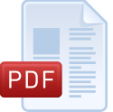Using Artificial Intelligence and NGS Data for the Diagnosis and Management of Patients with Cancer
Thursday, November 13, 2025
12:40 PM - 1:10 PM EST
Location: Innovation Spotlight Stage #2
- MA
Maher Albitar, MD
CEO/CMO
Genomic Testing Cooperative
Lake Forest, California, United States
Innovation Spotlight Speaker(s)
Transcriptomic and mutation profiling reflect cancer drivers, biology, and predicts response to therapy. However, RNA data is complex and influenced by multiple biological and technical factors. AI is uniquely equipped to decipher the relevance of the data, normalize these variables and integrate data to be utilized to predict morphology, flow, and FISH results, response to therapy and prognosis. While this approach holds great promise for precision oncology, it also has limitations that must be considered.
This session explores the current and emerging applications of combining AI with transcriptomic and mutation profiling in cancer diagnostics and treatment planning.
This session explores the current and emerging applications of combining AI with transcriptomic and mutation profiling in cancer diagnostics and treatment planning.

